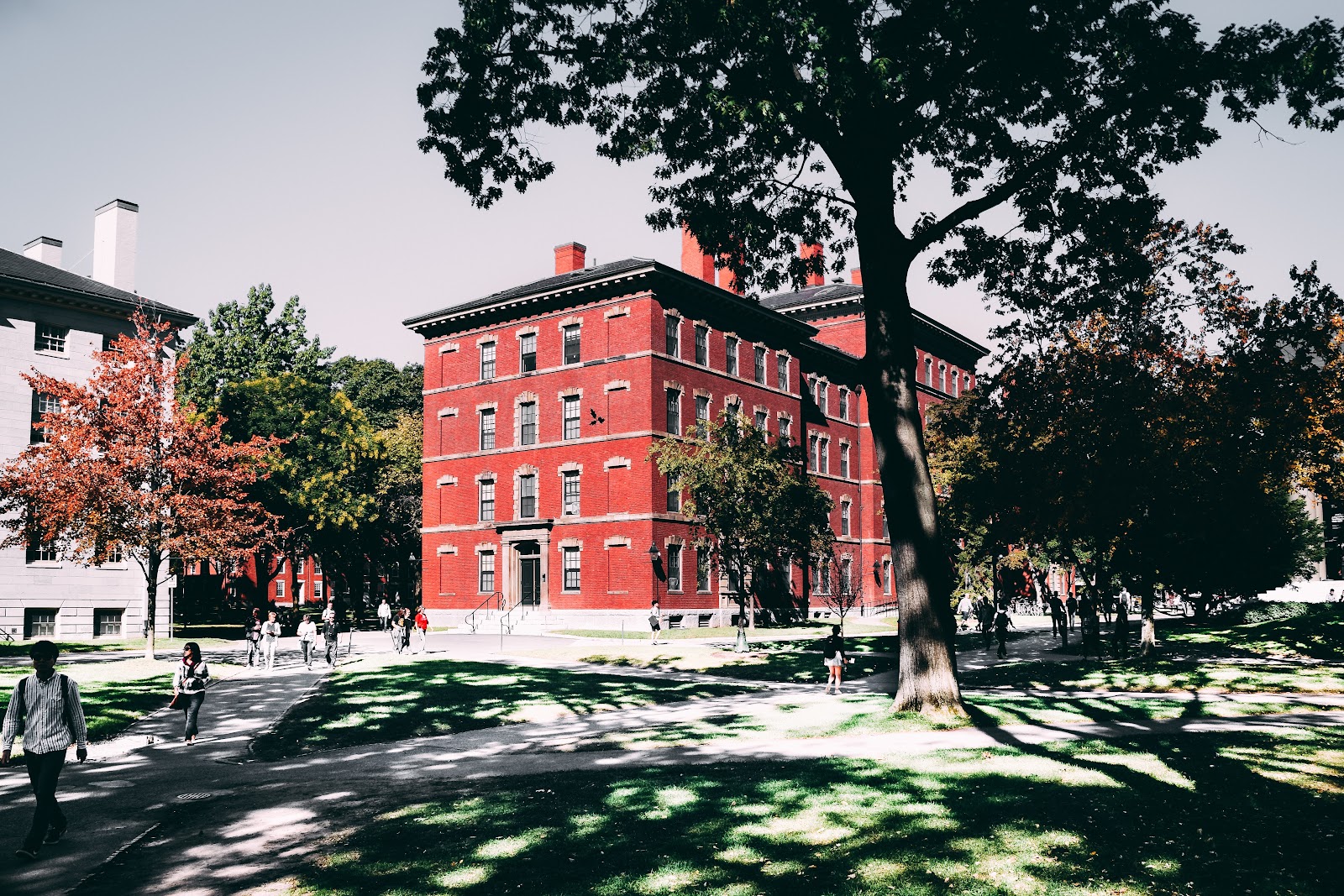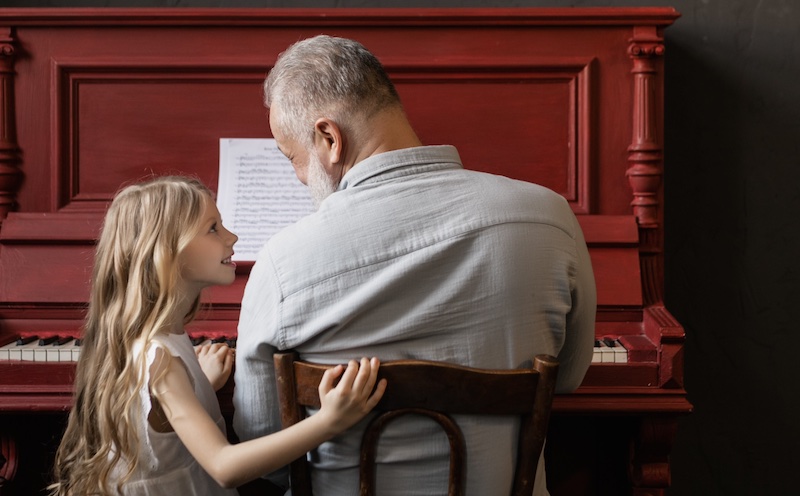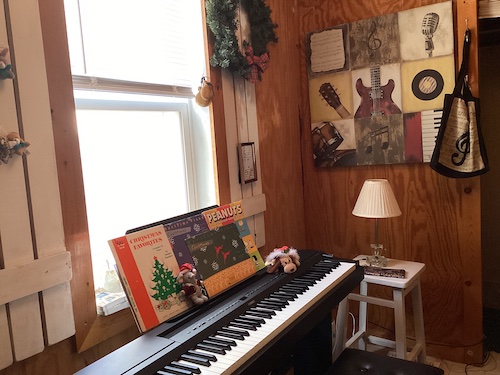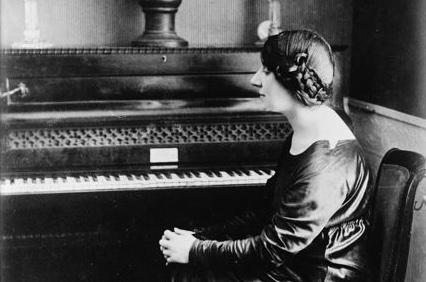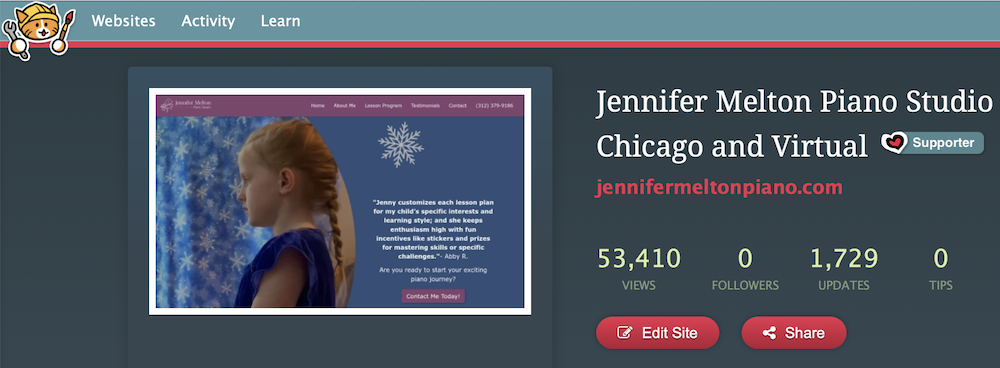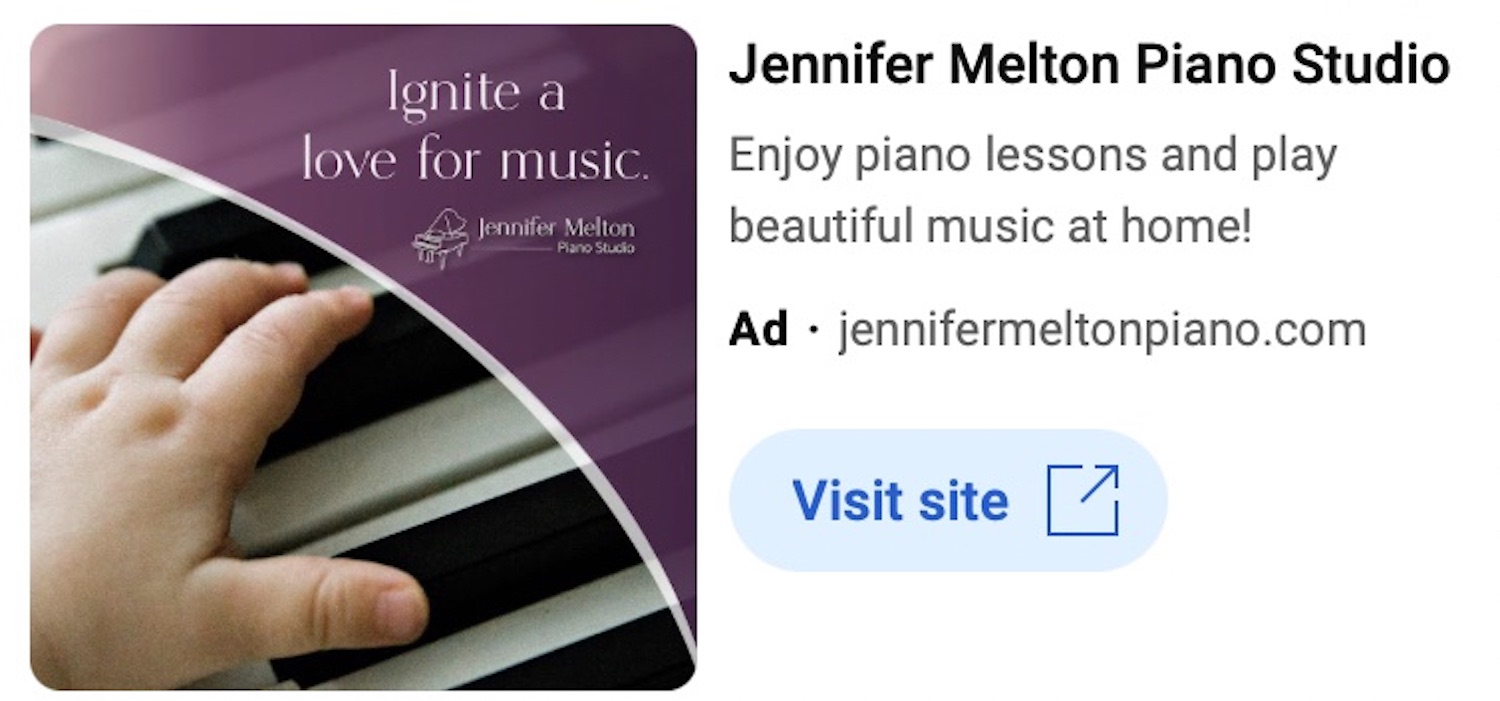🧭 My Piano Journey: So You Want to be a Music Major - Part 2
Finding a New Guide
My goal was to get a bachelor's degree in music. I was sixteen and I needed a serious college-prep teacher as soon as possible. Once again, the studios in my area were full. It seemed that no one would be able to take me on.
But then one summer day my mom got off the phone with one more piano teacher recommended by a teacher who had a full studio. I set up an audition with her.
I remember pulling up to the one-story stone house with three gables. Walking inside, I took my shoes off and walked on the plush white carpeting. Ahead of me was a shiny black Yamaha grand piano. The living area was spacious and looked like a museum. Diana Turner was a middle-aged woman, married with no kids, hailing from England. She had short, straight, sandy blonde hair. Her aristocratic accent and cultured demeanor were exactly what one would picture to be a great piano teacher.
I sat down at the grand piano; a stark contrast from my chestnut Acrosonic spinet. The keys were wider and heavier and the pedal was stiffer. I think I may have prepared Moonlight Sonata or Für Elise for her. I played a few scales and arpeggios and I told her I would like to be a music major at the state university. At the end, she looked thoughtful and said she would take me on as a student.
A Long Way to Go
The practice expectations were a lot to handle. 2 hours a day! Although I knew 4 octave scales, I needed to speed them up. What are chord progressions? Much of our lessons were spent picking repertoire and marking in fingerings. I distinctly remember the way she would say, "Right." She had a hesitant, skeptical tone most times to my comments. I believed that I was unintelligent because of this.
My state had an examination system very similar to the Royal Conservatory of Music and Mrs. Turner determined that I was Level 7 or late intermediate. I began working on classical music very heavily and realized that I was discouragingly behind in understanding music theory. In May, I would take the Level 7 exam and I had a lot of work to complete in order to be ready.
An Unexpected Journey
On a cold day in November, Mrs. Turner drove me and another student to the state university, the very same to which I wanted to earn a music education degree. She was taking me for a lesson with her teacher, Dr. Ratigan. What an opportunity!
The early snow was patchy on the grass, melting a little. I was nervous during the one hour drive on the interstate. I looked out the window at the trees. Sitting in the front seat, I had very little to say. Whether it was my accent or my word choice, I rarely felt as though my small talk or comments were received well by Mrs. Turner. I don't remember much other than trying to be on my best behavior, hoping to make a good impression, and getting lost in thought as I looked out the window.
This was a school I was considering going to for most of my life. Many members of my family attended this university going back to my great-great-grandfather, a first-generation Irish immigrant, who studied agriculture. While I was planning to send in applications for many schools, I thought it was fortuitous that my new piano teacher had connections with this university. I could get an orientation to the music school and create a contact.
Upon arrival, we walked through the Student Union. It was a massive food court and study space. The wide-open, grassy campus was beautiful and I felt instant excitement that this could be my future school.
But then we visited the practice rooms. I will admit, I was very disappointed by the set up. It had an unwelcoming, cold, concrete interior. It was dark and extremely loud with reverb; devoid of carpet or sound panels. The pianos were decrepit uprights. I warmed up my hands by playing scales, but I was unimpressed, especially since my ears were hurt by the loudness and my fingers were still stiff from the lack of heat. The pianos were tinny and in desperate need of a technician.
Memories Like Photographs
Dr. Ratigan was a stern, gray-haired women; tall and intimidating. I wanted to create a good impression, but I felt timid and nervous. I brought to her Beethoven's Sonata in G Major, Op. 49, No. 2 and Valse Mélancholique by Rebikov in Bastien's Piano Literature, Book 4.
Typically when I felt nervous, much of my ability to emote evaporated. On top of that, my technique from playing my Acrosonic at home was not sufficient for her Steinway baby grand with the stiff keys and pedals. I didn't have a chance to warm up.
Immediately her feedback was that my fingers were not pressing into the bed of the keyboard and my pedal was sloppy. I was not getting completely to the floor or lifting clearly. My dynamic contrast was non-existent.
I felt my cheeks getting hot and red. This always betrayed me; embarrassment is so obvious on my face. Playing through the music with her watchful eye and quizzical expression was difficult. This was a far cry from the pleasant experience I had pictured. I was really looking for helpful feedback on what I could work over the next year before my audition. Instead, I felt like a complete fool for coming to this lesson at all.
"Do you know how many diminished 7th chords there are?"
My lack of theory knowledge was completely exposed.
"12?" I asked sheepishly.
The correct answer was 3 and she didn't hide her amusement at my ignorance.
"How would you describe the emotion behind this piece?" She asked about Valse Méloncolique.
After an excruciatingly long pause, with my brow furrowed and my mind racing through all the possible adjectives, weighing the possibilities of her response, I croaked out, "Wistful?"
"Wistful. Huh. And what does wistful mean?"
I don't recall my response, but I was stung by her dismissal.
 |
| Why, oh why, did I say crochet? |
At the end of this lesson, completely battered and fried, she asked me if I had any hobbies. I honestly hadn't crocheted much more than a dish towel, but it was all that came to mind.
"Crochet," I offered.
I had taken the bait.
"Well, maybe if you like doing things with your hands, you should crochet instead. And maybe piano is more of a hobby for you. If you want to be a music major, you have a lot of work to do to prepare for your audition."
I can't remember what prompted the following final comment from her. Perhaps it was my history of starting piano at age 10 and I was largely self-taught.
"I was concertizing at age 11," she boasted. And that was that.
Hindsight is 20/20
Looking back on this whole situation, I wish I had respected myself and not auditioned for this school. Yes, many of my music teachers that I respected earned their teaching degrees at this school. I thought this was where I needed to go. But this treatment was uncalled for and horrendous. Had I been secure in myself, I would have dismissed her rudeness and realized this attitude was her problem, not mine.
It Followed Me Home
I have had many piano lessons, positive and negative, and this one is forever seared in my mind. Why is it that we dwell on the negative events in life and disregard or minimize the positive ones? Why was a I so attracted to negativity; wanting so badly to change the minds of those who hurt me instead of following those who believed in me.
I thrive under positive motivation and seize up with shame-based motivation. Strangely, I vaguely remember my mom telling me that Dr. Ratigan said I was a quick study after she talked to her on the phone. That is the type of memory and evidence I need to remember, and yet it is very foggy when the rest seems so sharp and ready to accuse me.
The long-term damage caused by this lesson was high anxiety about practicing the piano. I was constantly fearful of not being good enough which resulted in tense muscles, back pain and chronic sadness. The joy I once felt while playing piano was sapped and replaced with intense shame. And all musicality that I might have been developing was stifled for fear that my interpretation was wrong.
Because Mrs. Turner was her student, Dr. Ratigan's influence continued through my piano lessons following that lesson. A Mozart Sonata I was preparing for the university audition was taken away from me because Dr. Ratigan told my teacher I wasn't mature enough to interpret it correctly. She said perhaps I could use another year after high school graduation to work on practicing piano before attending the university. I needed to gain more maturity in order to interpret music correctly. Teenagers didn't have enough life experience according to her. I heard this feedback multiple times, parroted to me by Mrs. Turner.
But back then, gap years really were not socially acceptable. I had this nagging feeling that if I didn't do everything young, then I wasn't good enough and I should just give up.
Seeing In a New Light
Recently, with the help of a therapist, I determined that Dr. Ratigan's credentials and experience didn't make her personal attacks valid. The personal attacks on me actually said volumes about her lack of character. Her deconstructive criticism communicated that, sadly, this was how she was treated by her former teachers, and for that, I pity her. She has to live with her anger and sadness, but I am no longer taking those feelings on as a responsibility.
As a student, I should have been taught and not ridiculed for my lack of knowledge. After all, we go to school to get an education. We should not be paying thousands of dollars merely for a stamp of approval.
While I can't erase the past, I can move beyond it and be grateful for the resilience I developed because of it. Despite Dr. Ratigan's comments, I do have a music degree and I am a career piano teacher and regular church musician. I have found success with the piano. Stay tuned for Part 3! There are many more stories I wish to share.
Forging a New Path
I have made a commitment to always provide constructive feedback. I do not personally tear them down. Criticism can always be constructive. I don't cover the entire gamut of mistakes I hear during a lesson. I find one or two focus points and always have something positive to say. A student was struggling with a piece, but her G major scale was smooth and even as butter. While I helped her out with the feel of the waltz, I definitely made sure to gush about how her diligent work on technique has paid off. She looked so invigorated and re-energized for the rest of the lesson and subsequent ones. Our students have the ability to thrive and we are major players in making that happen.
If you have any difficult memories associated with learning music and feel discouraged, I highly recommend finding a therapist specializing in Cognitive Behavioral Therapy. I believe that it will help you to thrive in music by challenging negative cognitions and rewriting your core beliefs about yourself. I wish you well on your piano journey.



